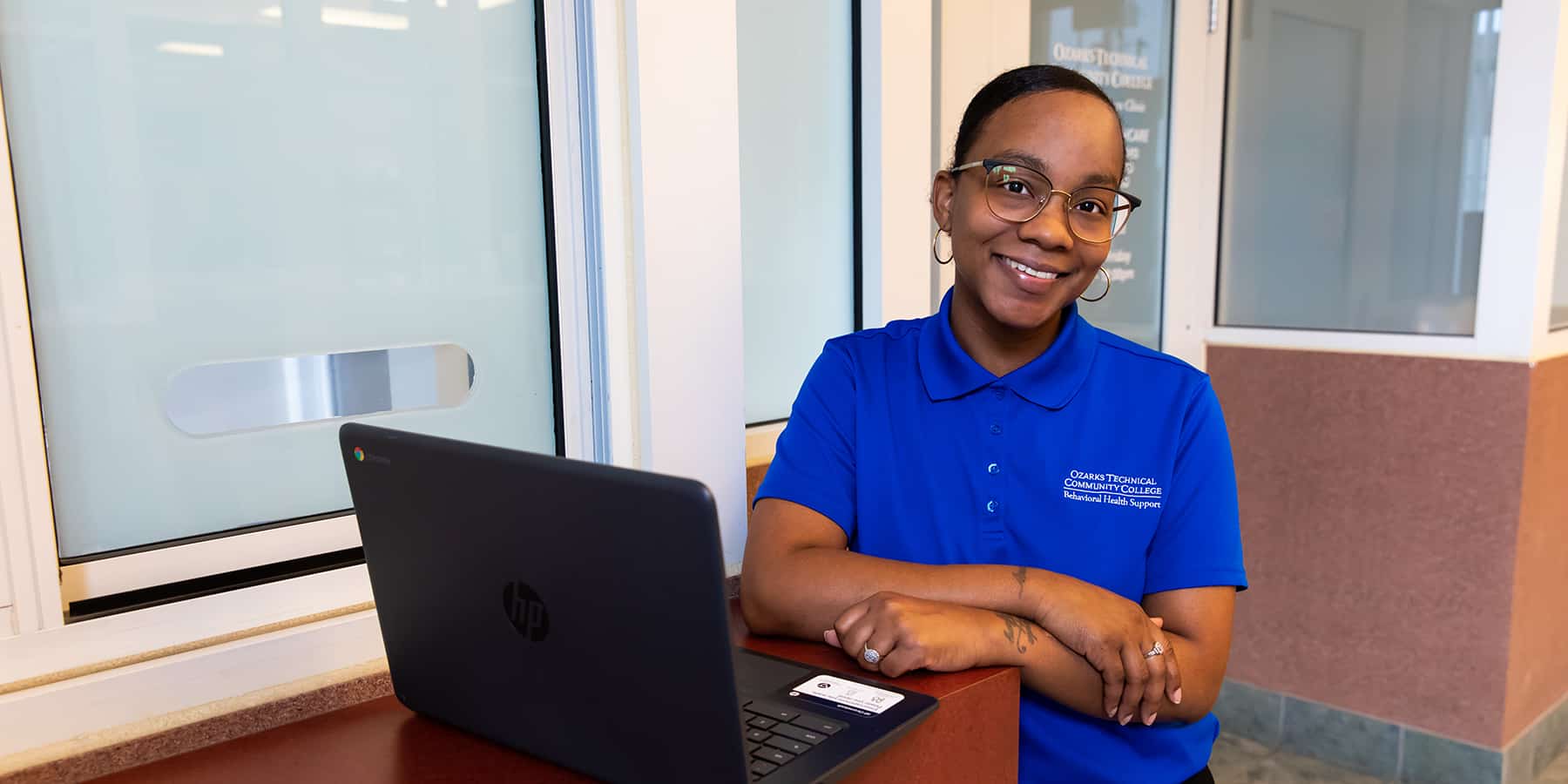Crystal Robinson’s new degree in behavioral health support is the best of both worlds. She’s pursuing her dream career in social services, but entering the workforce two years sooner than she would have with a more traditional degree in the field.
The mother of five says her own childhood experiences inspired her to pursue the rewarding career path. A first-generation college student, Crystal broke the cycle of poverty in which she was raised. Growing up, she watched family members fall victim to substance-use disorders and the consequences that followed. Now, she hopes to support others navigating similar difficulties.
“I’ve always had a heart for helping others,” she said. “That’s why this field of work is perfect for me.”
Crystal earned her GED with help from OTC’s Adult Education and Literacy Program in 2012. After that, she completed her Associate of Arts transfer degree at the college, all while working full-time and raising her family. But, when it came time for Crystal to apply for Missouri State University’s social work program, her GPA wasn’t where it needed to be. She had to reevaluate her plan.
“That’s when I learned about OTC’s new degree program in behavioral health support,” Crystal explained. “It was similar to the degree program at Missouri State, but you could graduate and get to work much faster.”
OTC’s Behavioral Health Support Program debuted in the spring of 2017 thanks to a grant from the Missouri Foundation for Health. The program was created specifically to meet local workforce demands with its community-focused, practicum-intensive components. Crystal was one of many BHS students who had the opportunity to earn the degree at little to no cost thanks to the Ozarks’ Promise grant, which is a tuition-free health care training program funded by the U.S. Department of Labor.
“My instructors and my classmates really made this program what it is,” Crystal said, reflecting back on her experiences. “Everyone was so knowledgeable and helpful – we made a great team.”
Earlier this week, Crystal and her cohort officially completed the program, celebrating their accomplishments with a virtual ceremony. The graduates are now prepared to work in entry and mid-level positions at mental health treatment facilities and schools.
Crystal currently works as a community living specialist for Easterseals Midwest, where she provides direct support for individuals with disabilities or behavioral needs. She plans to work in the field for a few years before earning her bachelor’s and master’s degrees. Eventually, she would like to become a substance-use counselor to support those battling drug addiction.
“I just have a natural compassion for individuals affected by substance-use disorders,” Crystal said, emphatically. “I can help make a difference.”
Crystal is already making a positive change in her community. The first-generation college student will impact the lives of many with her new degree.

